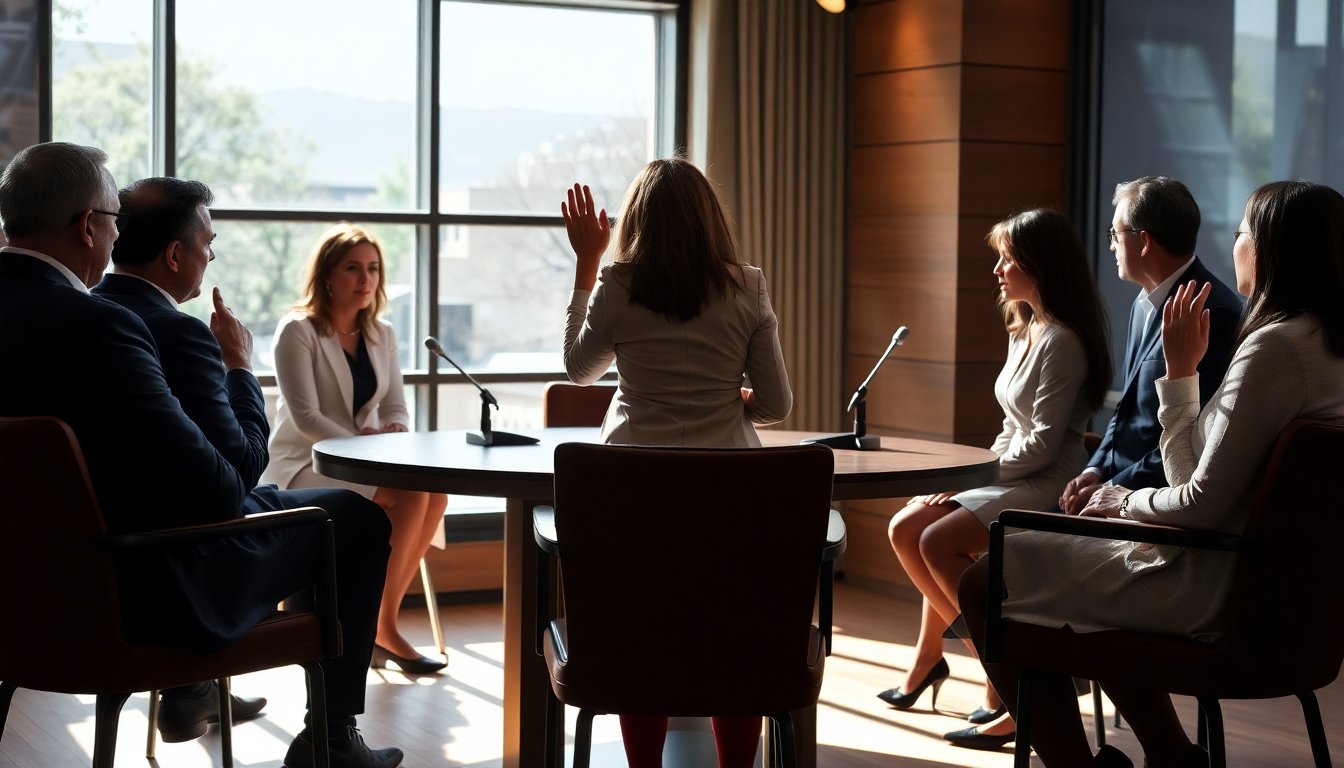Table of Contents
On a recent episode of The View, co-host Alyssa Farah Griffin strongly challenged former First Lady Michelle Obama‘s statement regarding the United States’ readiness to elect a woman as president. Griffin’s remarks initiated a spirited discussion among the co-hosts, igniting a debate about the perceptions and realities of female candidates in American politics.
The debate on women’s readiness for presidency
During the segment, Griffin expressed her disagreement with Obama’s assertion made at a recent event in Brooklyn, where Obama stated that America is still unprepared for a female leader. Griffin argued that this perspective is not entirely accurate. She highlighted the experiences of past female candidates such as Hillary Clinton and Kamala Harris, suggesting that their challenges reflect broader systemic issues rather than a lack of readiness among the electorate.
Flawed candidates or systemic issues?
Griffin characterized both Clinton and Harris as flawed candidates, indicating that their challenges extended beyond their gender. She noted that Clinton, despite her extensive qualifications, campaigned during a period characterized by a backlash against political dynasties. Griffin also expressed concerns about Harris’s communication skills, suggesting they hindered her campaign effectiveness. “We haven’t had the best female candidate yet,” Griffin stated, emphasizing that the issues at play are more intricate than mere gender bias.
Counterarguments from co-hosts
Co-host Joy Behar quickly interjected, countering Griffin’s points by highlighting that male candidates also exhibit flaws. She questioned why the same standard does not apply to women. Behar emphasized that numerous countries, including Mexico and Iceland, have successfully elected women as presidents. This suggests that the U.S. stands out in its reluctance to embrace female leadership.
Insights from Kamala Harris and the issue of misogyny
In a recent discussion, co-host Ana Navarro recalled a conversation with Vice President Kamala Harris. During a previous interview, Harris emphasized her commitment to encouraging young girls, particularly girls of color, to pursue leadership roles. She stressed the importance of empowering the next generation, regardless of the current political landscape.
In contrast, co-host Sunny Hostin provided a more sobering perspective. She reiterated her belief that misogyny is deeply embedded in American society. As an Afro-Latina, Hostin shared her experiences with the systemic barriers that women of color encounter in politics. She argued that while aspirational messages are crucial, the United States has not fully addressed its issues with sexism and racism, factors that contributed to Harris’s defeat.
Michelle Obama’s perspective on female leadership
In recent remarks, Michelle Obama articulated concerns regarding the nation’s readiness for a female president. She pointed out that many men in America remain uneasy about being led by women. Obama underscored the necessity for societal evolution and a transformation in cultural attitudes to foster an environment where female leaders can succeed.
As co-hosts of The View engaged in further dialogue, it became evident that the discussion on female leadership in the United States is complex. It encompasses various viewpoints, from the influence of individual candidates to wider societal sentiments.
The future of female leadership in America
The recent discussion sparked by Griffin’s remarks prompts a deeper analysis of America’s readiness for a female president. The contrasting opinions among the co-hosts highlight the intricate dynamics of gender and leadership in a continually evolving political landscape.
As the conversation surrounding female representation in leadership roles progresses, it is crucial to confront both systemic barriers and the individual strengths of potential candidates. There is hope that upcoming elections will showcase a more diverse and capable group of female leaders prepared to take on significant roles.


